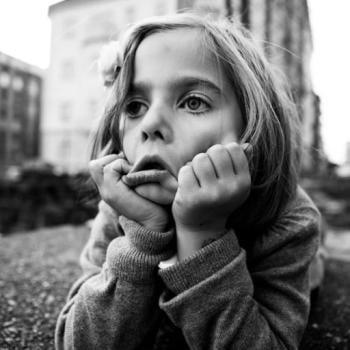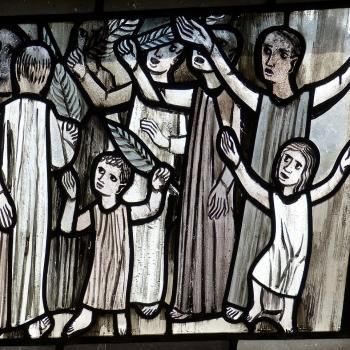Say Yes to the Dress.
Rock the Reception.
Shedding for the Wedding.
Whose Wedding Is It Anyway?
My Big Fat Red Neck Wedding.
The Bachelor and the Bachelorette.
Television these days is awash in reality TV programs portraying weddings and marriage as competitions, entertainment, and opportunities to throw extravagant parties and spend lots of cash. This week we'll see what might be the biggest reality TV wedding of the decade: the nuptials of the royal couple, Prince William and Kate Middleton.
Whereas weddings are usually a time of celebration for close friends and family, William and Kate's joining will be broadcast on television to a worldwide audience of the curious. It will be next to impossible not to take notice of this globally-anticipated event even as it runs the risk of turning a young couple's sacred moment into a spectacle designed to sell commemorative plates and t-shirts.
All of which begs the question: How is popular culture helping to shape what teens and young adults think about marriage?
I have to confess that often when I'm approached by young adults who are looking for me to officiate as the pastor at their wedding, my first reaction is to say, "Uh . . . I'm think I busy that weekend." It's not uncommon for a couple getting married in their late teens or early twenties to be more focused on the spectacle of the wedding ceremony and reception than they are on the content of their vows or the long-term health of their relationship (that real work that comes after the festivities and the honeymoon vacation are over). But can we blame them, given the generally trivial image of marriage that we see depicted in popular culture?
And in truth, the Church hasn't helped the issue very much. In many ways, we have simply become one more commodity in an extravagant wedding industry. I've had the experience of couples calling to inquire about using my church for a wedding, only to cancel plans when it turned out that the sanctuary paint color clashed with the bridesmaid dresses. I've worked with very young couples where the groom was intent on keeping the worship service short to allow more time for the reception party. And I've served churches that offer couples a long list of services and accommodations for purchase, not unlike ordering items off a menu.
But I would place the signing of the marriage license at the top of the list of ways the Church sends a confusing message to young people about marriage. By signing that piece of paper, we become agents of the state and communicate to the couple that what really makes them married isn't their personal commitment or the blessing from the Church or the love of God—rather, it is some document that bestows on them various financial and legal benefits.
Certainly, there is a deeper and more meaningful understanding of marriage that we can offer to teens, one centered in relationship, compassion, and self-giving love. We can challenge teens to critique a culture that celebrates Britney Spears and her 55-hour marriage, gives the floor to politicians with multiple divorces who argue for the defense of marriage, and offers up "The Bachelor's" method of turning marriage into a television game show.
And most importantly we can encourage young people to spend more time planning and preparing for the marriage itself than they might for the wedding event. We can spend some time in their teen years helping them understand what healthy long-term relationships look like and what it means to commit to another person in love. In this regard, I find the words of the Archbishop of Canterbury, Rowan Williams, particularly helpful as he reflects on the upcoming royal wedding:
Every marriage is a really big commitment to the people involved. It's a lifetime commitment . . . that says "Actually I'm prepared not only to spend the rest of my life with you, but to spend the rest of my life finding out about you. There's always going to be more of you to discover." And if that's what people are saying to each other in a wedding, that says something very deeply important about what human beings are like. There's a mystery and delight at the heart of human beings and it's possible to spend a lifetime and more discovering just that. Every wedding then sends a message to people. It's two people declaring something, not only about themselves, but about what they most deeply believe, the values they most deeply hold to—declaring that to the world around them.
So what values do most young people actually hold when it comes to the institution of marriage? We might be surprised. Recent studies in the United States indicate that most teens have a positive image of marriage, with more than 80 percent believing they would one day tie the knot. This is particularly true for teens who spend their adolescence in a home with both biological parents. But here's the twist: more than half of teens surveyed feel that it's important to put off marriage for at least five years after high school graduation, with many waiting even longer. The royal couple themselves have enjoyed an almost ten-year relationship, only now finally marrying in their late 20s.





